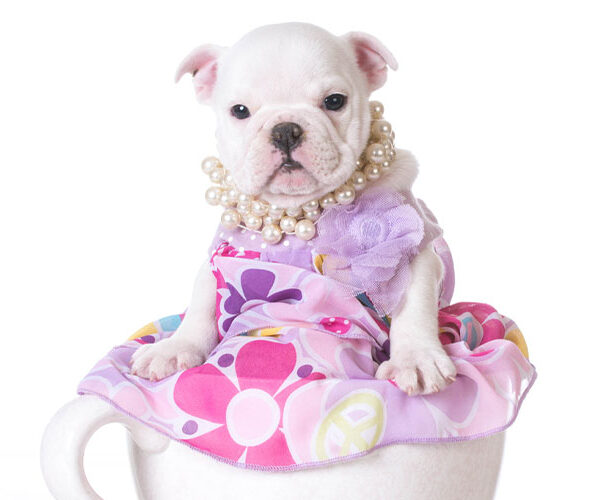Teacup breeds have been all the rage since Paris Hilton introduced her adorable chihuahua to the world, but there’s a lot more to them than that. Teacup breeds have been around for decades, but you might not know how they came to be in the first place.
When looking at various teacup puppies and contemplating whether you should buy one, it’s important to know how they came to be. Here is all you need to know about the history of teacup puppies:
When It Began
While teacup and toy puppies are often used to mean the same thing, they’re not always so similar. Toy breeds have an extensive history that dates back to 12,000 B.C., whereas teacup breeds are relatively newer. Toy breeds initially happened because different sizes were required for different tasks.
For example, a bigger breed or dog would be specifically trained and bred to be a hunter dog. Many dogs were conceived to be dogs who would end up participating in the war. Toy dogs were domesticated at a time when experts were trying to understand how they could breed dogs to be a specific size.
Is There A Difference Between Toy Dogs and Teacup Puppies?
Many people believe teacup and toy puppies to be the same thing, but the crucial difference here is their size. In general, teacup puppies are the smallest puppies that are found. On the other hand, toy breeds are bigger than teacup varieties.
Teacup dogs are classified as such when they weigh anywhere from two to five pounds as they grow into adults. They also need to be under 17 inches in length. Toy breeds are bigger than this and include Pomeranians and Chihuahuas.
Commercial Breeding and Health Risks
When considering buying a teacup puppy, you must think through this decision carefully. Teacup breeds require a lot of care, and they might not be what you expect. Some common health problems that can arise with teacup puppies (especially those from commercial breeders):
Low weight: Because smaller breeds tend to have a faster metabolism, your puppy might be at risk for obesity. While you might want to feed them all the time, it has to be combined with exercise to ensure they don’t suffer from their appetite.
Weakness in the bones: Teacup breeds are smaller, and their bones are weaker than the average dog’s. They are more at risk of fractures and bone diseases. It can be countered through supplements and proper care.
Hypoglycemia: Extreme blood sugar drop can lead to shivering and seizures.
Finding An Ethical Breeder
If you’re determined to bring home a teacup puppy, you must look for a breeder with ethical values. You want to find a breeder who genuinely cares about their puppies and wants to ensure they all go to happy homes. Don’t fall for commercial breeders, especially since this puppy will become your companion for a long time.
Looking To Bring Home A Teacup Puppy? We Can Help
When you’re looking for an ethical breeder who prioritizes their puppies’ health and happiness above all, My Puppy Therapy is your destination. We are responsible private breeders who screen all of our buyers to ensure that our puppies end up in a happy home.
Call us today at 954-544-1370 to find out more about our toy and teacup breeds.




